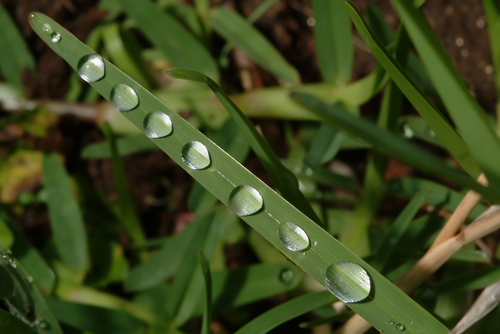 In a country with few natural resources and where the most famous body of water is the Dead Sea, Israel is looking beyond its arid landscape and taking the lead in water technology, the latest export-oriented industry to help it weather the effects of the global meltdown.
In a country with few natural resources and where the most famous body of water is the Dead Sea, Israel is looking beyond its arid landscape and taking the lead in water technology, the latest export-oriented industry to help it weather the effects of the global meltdown.The force behind the Jewish state's entry into the budding multibillion dollar industry has been decades of expertise in satisfying local demand. Now, a growing number of Israeli firms are eyeing lucrative overseas markets, offering cutting-edge expertise in areas such as desalination technology, sewage-eating bacteria and wastewater treatment.
"Israel is definitely one of the leaders, if not the leader, when it comes to water. ... I think of Israel as the Silicon Valley of water," said Shawn Lesser, president of Sustainable World Capital, an Atlanta investment group that focuses on clean energy and water technology companies.
Reflecting the growing prominence of water technology, Israel's fastest growing technology company this year was Aqwise, a water treatment company that uses small, bacteria-dispensing plastic cubes to break down sewage, increasing treatment efficiency and capacity.
Another company, Israeli start-up TaKaDu, has found a high-tech solution to the age-old problem of leaky pipes. Instead of relying on heavy wrenches and machinery, the software firm uses advanced algorithms and mathematical models to monitor for small leaks and unusual activity that lead to costly pipe bursts. It's selling the technology to water companies. One of the first software-only solutions, TaKaDu is also conducting tests in Europe and Asia.
Water leaks cost utility companies $14 billion a year, according to a 2006 World Bank report. Halting these leaks could save enough water to meet the needs of an additional 200 million people a year, the report said.
Faced with the water shortage problem every day, Israel needs to develop technology that increases water conservation and production. Yearly consumption hovers around 200 cubic meters (7,000 cubic feet) per capita. That's about one-sixth the amount of water consumed by an average Californian.
Israel's push into water technology mirrors the aggressiveness of the resource-poor nation in other sectors. In a region where many of its neighbors hold some of the world's biggest oil reserves, Israel has none. Instead, it has long focused on high-tech development and environmental innovation.
Israeli company Netafim pioneered drip irrigation, a technique that can grow crops in harsh conditions, in the 1960s. It has since grown into a global company with $500 million in annual sales.
Thanks to advances in wastewater treatment, most of the country's agriculture is now cultivated with recycled water, according to the Agriculture Ministry.
Only recently has Israel begun to realize the enormous opportunities of exporting its technology.
Israel's Trade Ministry hopes the country can export $2.5 billion in water technology in 2011, a jump from $1.4 billion last year and $750 million two years earlier.
Source: U.S.News & World Report

